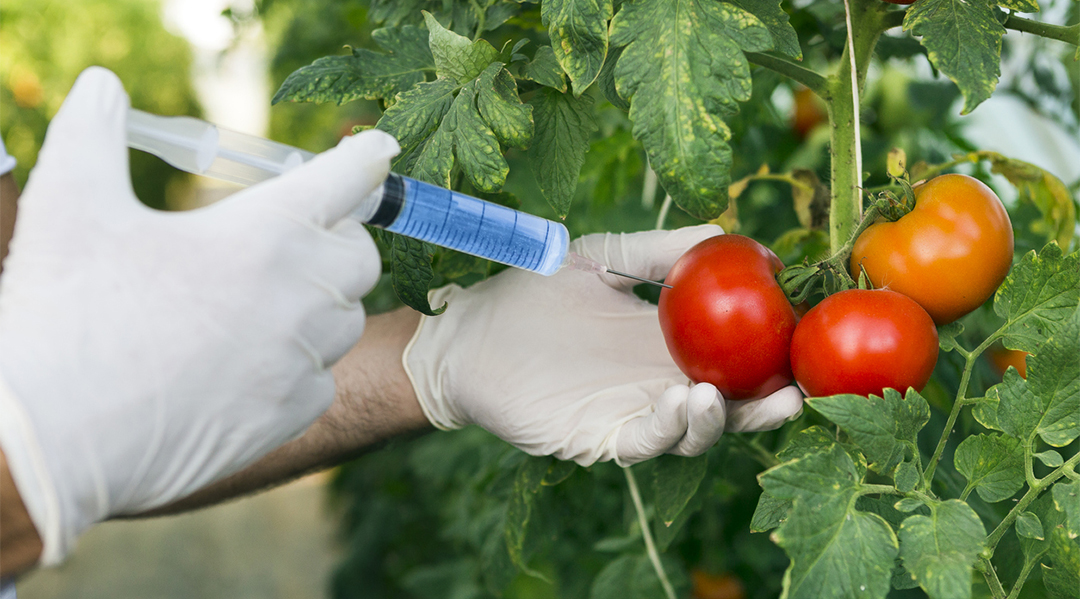GMO Construct-Specific PCR Testing
Genetically Modified Organism (GMO) testing is a critical component in ensuring compliance with global regulations and maintaining consumer trust. GMO construct-specific polymerase chain reaction (PCR) testing is one of the most precise methods to detect specific genetic modifications introduced into crops. This service ensures that genetically modified organisms meet regulatory standards by identifying the exact DNA sequences engineered into them.
The PCR technique amplifies a particular segment of DNA, allowing for highly sensitive detection and quantification. In the context of GMO testing, this method is used to verify the presence or absence of specific inserted genes within a crop variety. This precision makes it an indispensable tool in both regulatory compliance and research.
Our laboratory uses cutting-edge instruments such as real-time PCR machines, which provide not only qualitative results but also quantitative data on the amount of target DNA present. This is crucial for ensuring that genetically modified organisms adhere to strict thresholds set by international bodies like the World Trade Organization (WTO) and the Food and Agriculture Organization (FAO).
The process begins with sample preparation, where plant tissue or seeds are extracted and processed to isolate genomic DNA. This step ensures high-quality starting material for PCR amplification. Once prepared, the samples undergo PCR amplification targeting specific regions of the inserted gene(s). The resulting amplicons can then be analyzed using agarose gel electrophoresis or other advanced techniques.
Our testing methodology is aligned with international standards such as ISO 17025 for quality management and ISO 65864-3:2019 for PCR-based methods in GMO analysis. This ensures that our results are both reliable and internationally recognized. The specificity of the PCR test allows us to differentiate between naturally occurring genetic variations and engineered modifications, providing accurate and actionable data.
Understanding the regulatory landscape is essential when conducting GMO construct-specific PCR testing. Different countries have varying thresholds for allowable levels of GMO content in agricultural products. For instance, the European Union (EU) has stringent regulations on the presence of certain genetically modified organisms, particularly those related to soybeans and corn.
The results from our GMO construct-specific PCR tests are critical for several stakeholders including seed companies, regulatory authorities, and import/export businesses. Seed companies can use these results to ensure their products meet market requirements. Regulatory bodies rely on the accuracy of such testing to enforce compliance with international agreements. Importers and exporters benefit by having verifiable data that supports trade negotiations and ensures product acceptance in target markets.
Benefits
- Precision: Detects specific genetic modifications introduced into crops, ensuring regulatory compliance.
- Reliability: Utilizes international standards to provide accurate and consistent test results.
- Speed: Quick turnaround times for sample analysis and reporting enhance decision-making processes.
Customer Impact and Satisfaction
Our GMO construct-specific PCR testing service has a profound impact on various sectors, particularly in agriculture and forestry. By providing precise and reliable data, we help our clients navigate the complex regulatory landscape and maintain compliance with international standards.
For seed companies, this service ensures that their products are free from unintended genetic modifications, thereby protecting brand integrity and consumer trust. Regulatory authorities benefit from accurate testing results to enforce regulations effectively, ensuring a level playing field for all stakeholders in the agricultural sector.
The ability to differentiate between naturally occurring genetic variations and engineered modifications is crucial for import/export businesses. Having verifiable data supports trade negotiations and ensures product acceptance in target markets, reducing the risk of non-compliance fines or product rejections.
Our clients report high levels of satisfaction with our service due to its accuracy, speed, and reliability. The precision of the PCR test allows for accurate differentiation between genetically modified organisms and natural variations, providing valuable insights into crop characteristics. This data is essential for informed decision-making in research and development, as well as for strategic business planning.
Competitive Advantage and Market Impact
- Regulatory Compliance: Ensures that genetically modified crops meet stringent regulatory standards set by international bodies like the WTO and FAO.
- Market Access: Provides verifiable data supporting product acceptance in target markets, enhancing market access for agricultural products.
The precision of GMO construct-specific PCR testing is a significant competitive advantage. By offering accurate and reliable test results, our laboratory helps clients stay ahead of regulatory changes and emerging trends in the agricultural sector. This service ensures that genetically modified crops meet stringent thresholds set by international bodies, thereby enhancing market access.
The ability to differentiate between naturally occurring genetic variations and engineered modifications is crucial for maintaining product integrity and consumer trust. This precision allows our clients to make informed decisions about their products' characteristics, which can lead to improved crop yields and enhanced market competitiveness. By ensuring regulatory compliance and providing accurate data on genetically modified organisms, we contribute to the overall sustainability of global agriculture.





